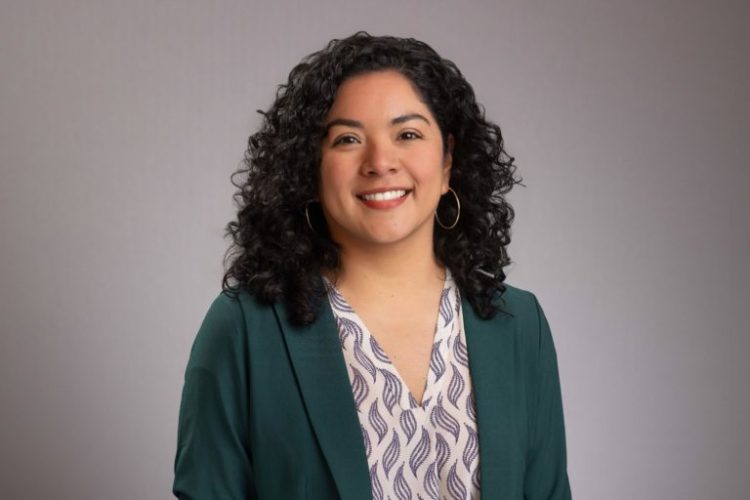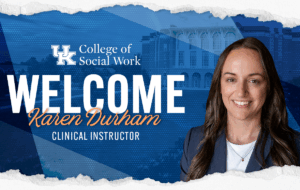Lexington, KY – As Restorative Justice Week commences, the University of Kentucky’s College of Social Work (CoSW) highlights the work of Dr. Jackie Duron, the newly appointed Associate Dean of Faculty Advancement. Through years of experience in the juvenile legal system and a deep commitment to addressing harm within communities, Duron is reimagining the potential of restorative and transformative justice, aiming to make it a foundational element of her work at CoSW.
For Duron, her journey into restorative justice began while providing therapeutic support to youth under probation. “It started with anger management and conflict resolution,” she recalls, “and gradually led me to consider what justice could look like beyond punishment.” This initial exposure opened her eyes to alternative approaches that focus on healing, accountability, and, above all, hope.
At its core, restorative justice is about “offering space and time for people to recognize harm, take accountability, and move towards healing,” Duron explains. Unlike traditional justice systems that often isolate and punish, restorative justice brings people together—survivors, offenders, and the community—to address harm and work collaboratively toward resolution. “It’s an opportunity to rebuild connections, to recognize when we’ve been disconnected, and to focus on transformative responses rather than retribution,” she says.
Duron’s philosophy is evident in her work with New Jersey’s “Restorative and Transformative Justice for Youth” program, a state-led initiative that provides community-based support hubs offering mental health, educational, housing, and employment services among others for at-risk youth. These hubs, she explains, don’t just respond to individual cases of harm; they aim to “build an ecosystem of support” that is integrated into the fabric of the community. The goal? To prevent future harm by addressing systemic inequities and providing youth with the resources they need to succeed.
As an administrator at CoSW, Duron envisions integrating these principles of restorative justice within academic structures. “Every relationship has the potential for harm, whether intentional or not,” she says. “Our job, then, is to create policies and practices that address harm constructively and foster a sense of community.” She believes that by building a supportive environment within CoSW, faculty and staff can model these practices, helping to instill a restorative mindset in the next generation of social workers.
Implementing restorative justice within institutional frameworks isn’t without its challenges. “There’s a lot of work in building these structures from scratch,” Duron acknowledges. Yet she remains optimistic, emphasizing that restorative justice is a process that requires patience and a commitment to honest dialogue. “Conflict can be uncomfortable, but it’s necessary for growth,” she says. In her role, Duron is focused on making these practices standard within the CoSW community, ensuring that they’re not just symbolic but deeply embedded into the college’s approach.
Duron measures success by the community’s capacity to engage in reflection and transformation. “We need to take time to consider different perspectives,” she says, noting that true change requires a willingness to challenge assumptions and confront discomfort. Through restorative justice, Duron believes CoSW can create a culture where students, faculty, and staff feel both supported and accountable—where the potential for harm is acknowledged and addressed through thoughtful, community-focused solutions.
For those interested in restorative justice, Duron’s advice is simple: stay curious. “We need to ask ourselves what led us here and how we can remedy it,” she says. Curiosity, she believes, drives alignment with restorative and transformative justice principles. By staying open to new possibilities, she argues, individuals can find ways to make meaningful impacts within their communities, both locally and beyond.
In a world where inclusion is often discussed as a solution, Duron offers a broader vision. She sees restorative justice as a pathway to true community transformation—one that transcends inclusion by creating spaces that are inherently equitable and supportive. “We must embrace difference in ways that don’t just conform but expand,” she says. “That’s where real change begins.”






